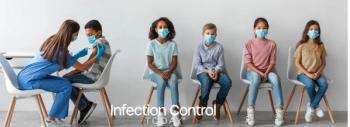
COVID-19 Reinfection: First Instance Recorded in Hong Kong, but What Does It Mean?
Investigators in Hong Kong report they have observed a reinfection of SARS-CoV-2 in a 33-year-old man nearly 5 months after his first positive test.
Investigators in Hong Kong have confirmed the first case of coronavirus disease 2019 (COVID-19) reinfection.
In a report from
The evidenced reinfection comes on the heels of US Centers for Disease Control and Prevention (CDC) guidance this month stating that persons who have tested positive for COVID-19 would not need quarantine nor testing for up to 3 months post-infection, so as long as symptoms do not redevelop.
The guidance was issued after published investigations varied on the conclusion that infected persons had approximate three-month COVID-19 immunity with developed antibodies.
The new reinfection patient, deemed “apparently young and healthy” by University of Hong Kong investigators in a statement, was first infected with COVID-19 more than 4 months ago.
His reinfection was reported following a trip to Spain, with a second set of virus being closely matched to a COVID-19 strain common in Europe during the last 2 months.
“Our results prove that his second infection is caused by a new virus that he acquired recently rather than prolonged viral shedding,” Kelvin Kai-Wang To, MD, a clinical microbiologist at the University of Hong Kong, said in the statement.
Newsletter
Stay prepared and protected with Infection Control Today's newsletter, delivering essential updates, best practices, and expert insights for infection preventionists.




